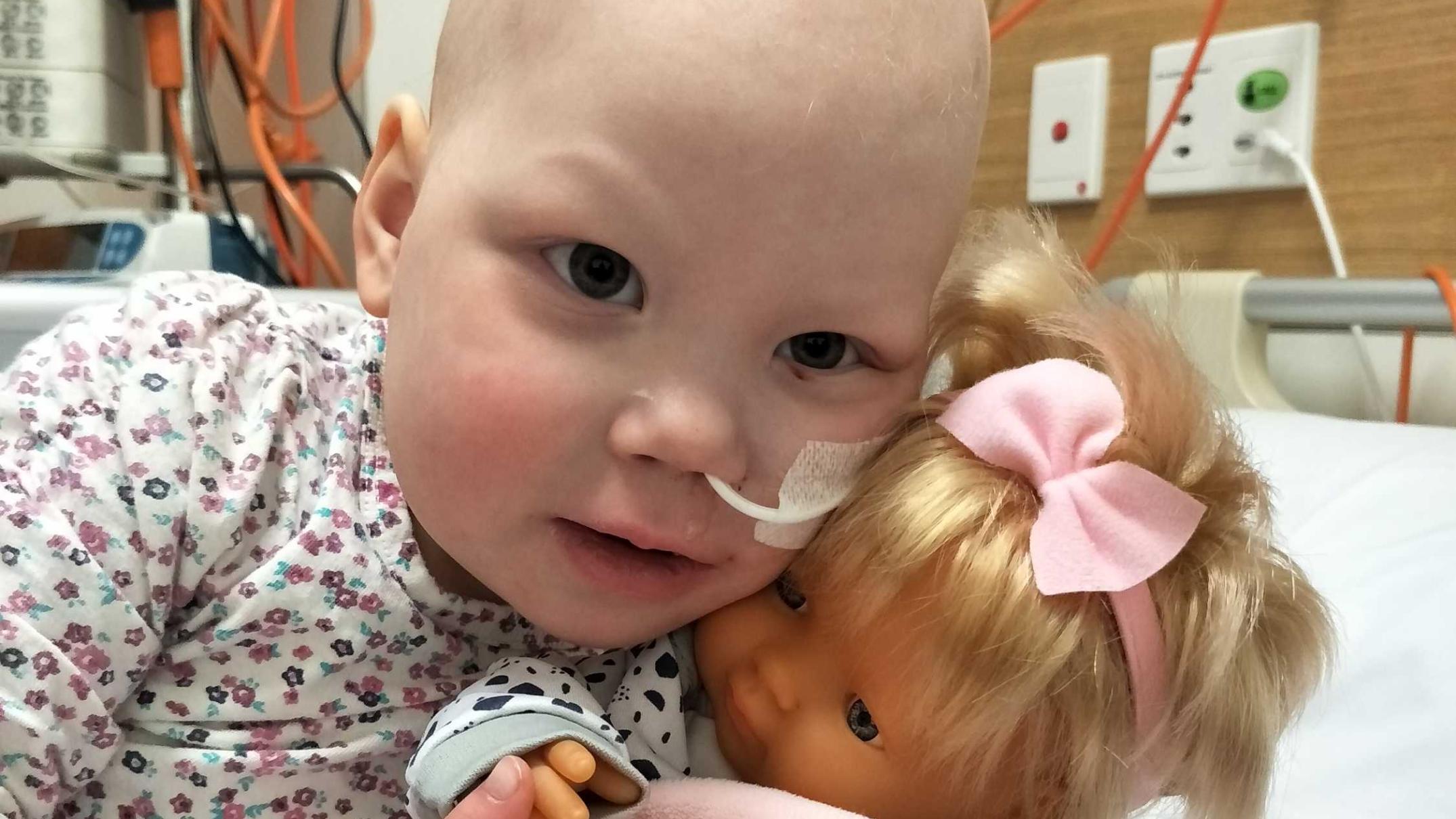It’s not the best time to be travelling internationally but, for the parents of an Adelaide toddler battling a rare form of cancer, going overseas is a necessity they might not be able to avoid.
Key points:
- Three-year-old Sophie Stephenson is fighting a rare stage four cancer in her brain
- Her family is looking into moving to Spain or the US for treatment, as it is not available in Australia
Costs for the treatment and relocation are expected to reach hundreds of thousands of dollars
Three-year-old Sophie Stephenson is undergoing gruelling treatment for stage four neuroblastoma, a rare childhood cancer affecting about 40 children each year in Australia.
The Stephenson family was told the cancer had spread from Sophie’s abdomen to other parts of her body when she was just 19 months old.
Sophie went through various cancer treatments over a period of 18 months before doctors referred to her as having “no evidence of disease”.
Three months later, a routine scan showed that Sophie had a tumour in the temporal lobe of her brain.
She was then diagnosed with relapsed neuroblastoma in the central nervous system (CNS).
There is little known about the characteristics of CNS-relapsed neuroblastoma.
Mother Brooke Stephenson said of those 40 Australian children diagnosed with neuroblastoma each year, “maybe one” relapses with CNS every one or two years.
“Because it’s so rare, there’s no treatment here, any chemotherapy that they give her can’t get up to her brain to kill any cancer cells that could form more tumours,” Ms Stephenson said.
When the treatments available for Sophie’s cancer failed to cure her, her parents went in search of clinical drug trials not yet available in Australia.
Father Matthew Stephenson said there is simply no standardised treatment protocols in Australia for Sophie’s relapse.
“But unfortunately, she did.”
Mr Stephenson began to research clinical drug trials overseas and the family found an option.
“I like to read up on all the research of neuroblastoma and we knew there were options that weren’t available in Australia if this was to happen,” he said.
“Our oncologist also mentioned it to us as an option.”
Mr Stephenson said the particular drug that Sophie will receive overseas has been used in New York since 2003
Family set to relocate and isolate
The family has since narrowed their search down to Texas in the United States or Barcelona in Spain, and will relocate in less than a month with their six-year-old daughter Hannah as well.
“Prior to COVID we would’ve jumped on a plane and gone overseas without too much trouble,” Mr Stephenson said.
“It adds a lot more extra stress to the trip.
Sophie has bravely faced the painful treatment and disruption in her very short life so far.
Her chemotherapy and radiotherapy treatments in Australia are due to finish soon, but the Stephensons know how complex neuroblastoma is.
If the treatment is again unsuccessful, it will leave Sophie with less than a 5 per cent chance of survival.
Ms Stephenson said the family has no choice but to move as a result.
“It’s very overwhelming to know that we have to go overseas, especially during COVID,” she said.
“If we go, there’s so much hope and so much chance that you know the benefits of going outweigh the risks.”
Ms Stephenson said they know of children that are beating this cancer with the drug available overseas.
“So it’s not a false hope,” she said.
Father’s wish is ‘to see her grow up’
The Stephensons have been struggling to raise the money they need to take Sophie abroad so she can access the drug.
The treatment is available at a cost of about $250,000, but the final figure is still undetermined.
The family has raised about $121,000 so far, but would still require at least $300,000 to relocate.
Sophie’s parents have just one wish.
“My biggest wish is just to see her grow up and live a happy and normal life,” Mr Stephenson said.




